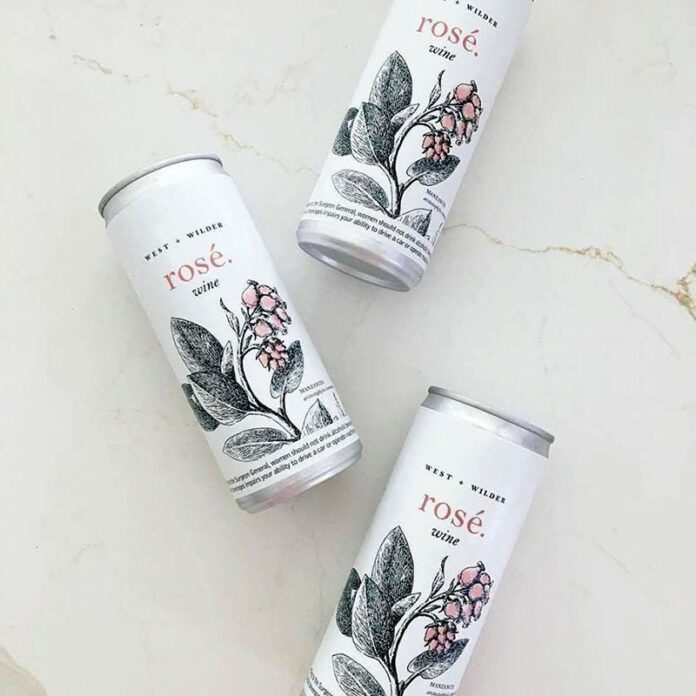Matthew Allan and Kenneth Rochford put in a lot of hard work to get their business started, and they can point to some of the evidence: a wall of empty cans displayed on a wall of their Santa Rosa office.
There’s an old saying that it takes a lot of beer to make great wine, but these aren’t beer cans, they’re wine cans, part of the business partners’ efforts to crack the mystery of the canned-wine market, a format that has, well, considerably less mystique among wine consumers and has only recently begun winning over craft-brew enthusiasts.
“We tasted through everything,” says Allan.
Having long toiled in the business of wine marketing, Allan and Rochford knew not to trust their own palates—they set up their own consumer study group. Nobody, save for one taster, wanted to know, “What vintage is this?” And the percentage who have to wait until the can is poured in a glass is trending down.
Rochford says that among the high-profile venues they’ve already managed to get their wines into this year, organizers of a Southern California surfing event replied, “We’ll be drinking it out of the can, thank you very much,” when asked about stemware options.
The decoratively printed cans (featuring botanicals, they are sometimes confused for gin and tonic) carry no vintage date, or any of the usual markers of premium wine like vineyard or varietal. To wit, the white is called white, what else do you want to know?
I’m told it’s got some Chardonnay, but less than the hint of butterscotch leads me to guess, plus Viognier, Sauvignon Blanc, Chenin Blanc and an aromatic splash of Muscat. It’s a bit tropical and fruity, and finishes surprisingly long for, well, wine from a can.
The pale rosé shows tangy, peach and nectarine flavors from real Russian River Valley Pinot Noir, Mendocino Carignane and Lodi Zinfandel. Two sparkling wines round out the lineup.
West + Wilder wines are sold
in three-packs ($16.99 to $19.99) that equal one bottle of wine;
each can is what the partners call “a home pour” of 250 milliliters or 8.5 ounces. Allan says his neighbor buys it for the ladies of her bridge club. “They love the portion control.”
Having founded the company with the intent, says Rochford, that “it would be nice to be true to some of the values which you yearned for when working for other people,” West + Wilder contribute 1 percent of gross sales, not profits, to One Percent for the Planet.
“Which is a good thing,” says Rochford, “because it will be a while before we turn a profit.”









